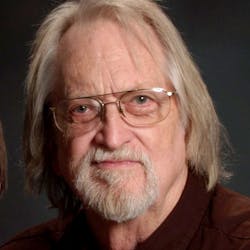‘Abdu’l-Bahá as architect of the World Order of Bahá’u’lláh
- Details
- Resources
As most Bahá’ís are aware, the life and contributions of ‘Abdu’l-Bahá are many, varied, and incredibly complex. Some of these are indicated by the several titles with which he was adorned, albeit he much preferred “‘Abdu’l-Bahá” – a servant to Bahá’u’lláh, a duty which he began as a youth and which never abated. The focus of this presentation is to put in perspective the extremely critical role he played in shaping the administrative order, with regard to its architecture, its function, and inviolability. For in addition to adding to – or defining more exactly – four absolutely crucial institutions to the World Order of Bahá’u’lláh, ‘Abdu’l-Bahá also set forth the hierarchy of relationships among these institutions, their powers and authority, and the process by which the administrative order could continue in perpetuity. While this presentation will not presume to offer any new information per se, it will attempt to bring to light precisely how critical ‘Abdu’l-Bahá’s role was as the lynchpin between the guidance of Bahá’u’lláh in the Kitáb-i-Aqdas and the establishment of the pillars of the Supreme Institution by Shoghi Effendi. The presentation will also attempt to demonstrate how ‘Abdu’l-Bahá’s contribution reinforces the manner in which the World Order mirrors forth and is upheld by the twin duties of knowing and worshipping God – i.e., the “learned” and the “rulers.”
John S. Hatcher
Dr. John S. Hatcher received his BA and MA degrees at Vanderbilt University, and his PhD at the University of Georgia. He is Professor Emeritus at the University of South Florida where he taught in the English Department for forty years and headed graduate studies in English Literature. An author and speaker, Professor Hatcher has published over a hundred poems and articles, and twenty-seven books. He presently serves as Editor on the Association of Bahá’í Studies Publishing Committee.

45th Annual Conference
In the Footsteps of ʻAbdu’l-Bahá: Contributing to the Discourses of Our Time
The views expressed in this recording are those of the presenter and do not necessarily represent the views of the Association for Bahá’í Studies, nor the authoritative explications of Bahá’í writings.